Queen's Micro Summit Series: Palo Alto
On Feb. 19 and 20, the first Queen’s Micro Summit brought together researchers, industry, and alumni for a deep dive into how supercomputing and AI are leading to new breakthroughs in drug discovery, climate prediction, and beyond.
Hosted at the Computer History Museum in Palo Alto, Calif., the two-evening event was for anyone interested in how this powerful technology is shaping the future. It included TED-style talks, fireside chats, gourmet food, and plenty of chances for attendees to engage with leading Queen’s experts driving innovation in the field.
“I was thrilled to be there,” says Kevin Deluzio, Dean of Smith Engineering at Queen’s. “Supercomputing and AI are poised to help us uncover solutions to some of our toughest problems, and as we heard, Queen’s researchers are at the forefront of this revolution.”
The summit kicked off on the evening of Feb. 19 with keynotes from the School of Computing’s Ahmed E. Hassan, one of the world’s foremost software researchers, and Ingenuity Labs Research Institute’s Ryan Grant, who is trying to turn Canada into a global supercomputing leader. The moderator was J. Kim Fennell, Artsci’79, a veteran Silicon Valley executive with 40 years of experience in the technology industry.
Their talks highlighted the pivotal role of AI in areas ranging from health care to energy, emphasizing how supercomputing is accelerating discoveries at unprecedented speeds.
“This is the golden age of software engineering and computing,” said Hassan, the Canada Research Chair in Software Analytics.
“We can now start building more complex software, and this is why we really believe this is the beginning of something much bigger,” he added.
Grant and his team are trying to build one of the best supercomputers in the world at Queen’s.
“We want to be one of the first universities that brings in real, largescale AI to teach it in classrooms and have students understand what they need to do to build a large AI infrastructure,” he said.
The second night of the summit took a more intimate approach with a fireside chat between Hassan, Grant, and Fennell. Their conversation went even deeper on the potential of supercomputing and AI to transform industries and everyday life.
The evening continued with a dinner, where attendees had the chance to dine with researchers and fellow alumni, followed by museum tours.
This was the first Queen’s Micro Summit in a series of four happening across North America this winter and spring. Each brings together Queen’s top researchers, industry experts, and alumni to explore a different theme related to the future of humanity and the planet. All of them welcome anyone interested in the theme and happen within a variety of immersive museum and gallery spaces, with food and drink included.
Next up is Toronto (March 25–26), where the theme will be future of media and law in the age of AI. Inside the multi-sensory art museum Arcadia Earth, audiences will hear how art and journalism will be consumed over the next decade, as well as how AI is transforming storytelling, music creation, and intellectual property.
Find more information about the Queen’s Micro Summits on the event page.


